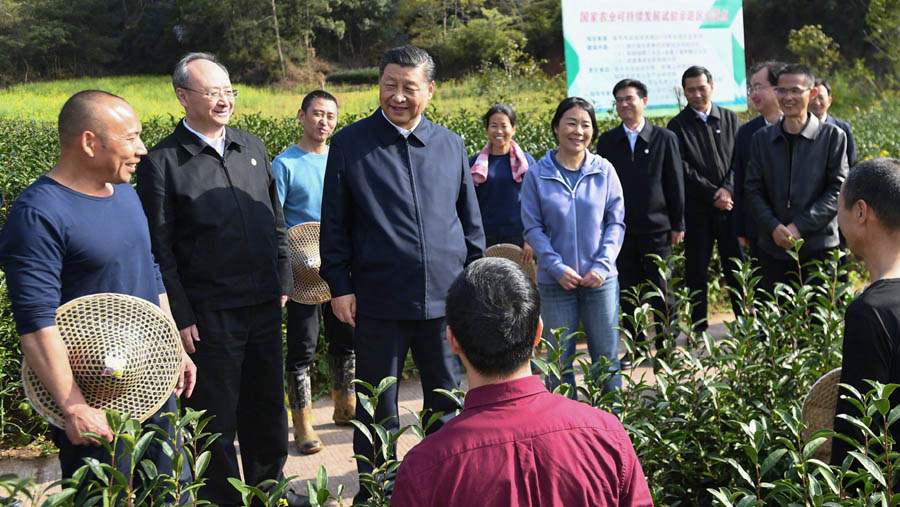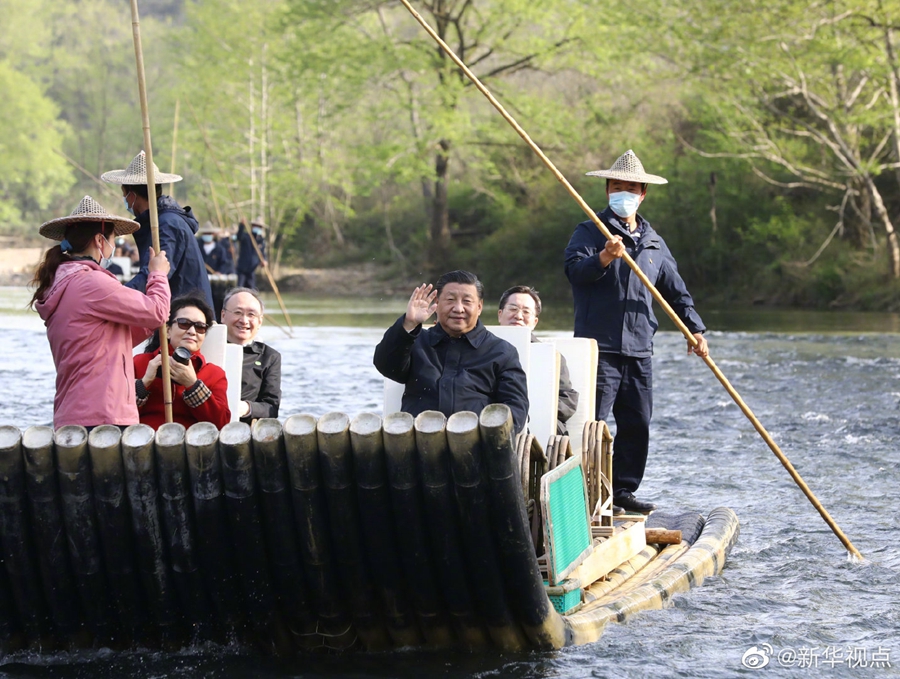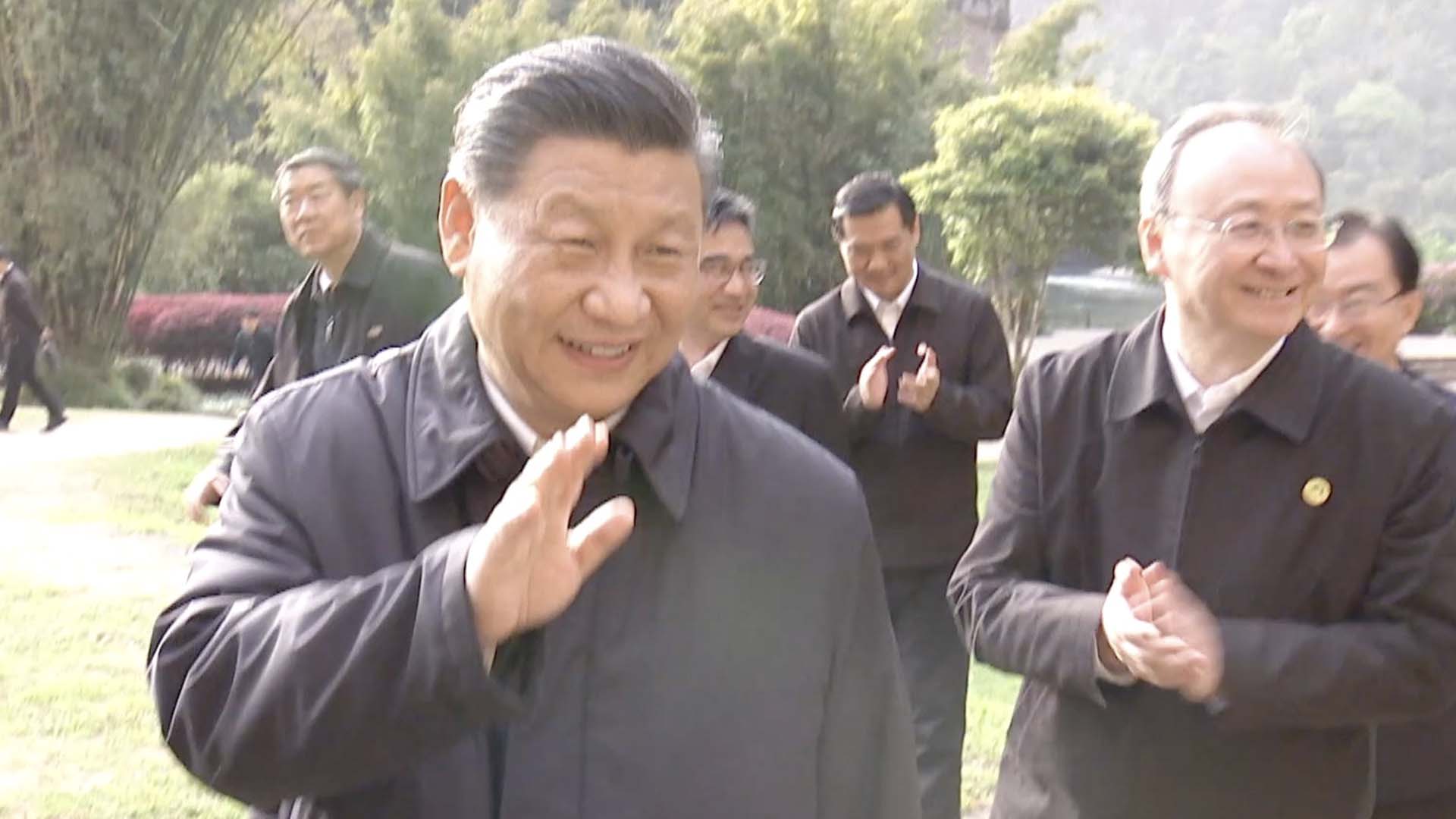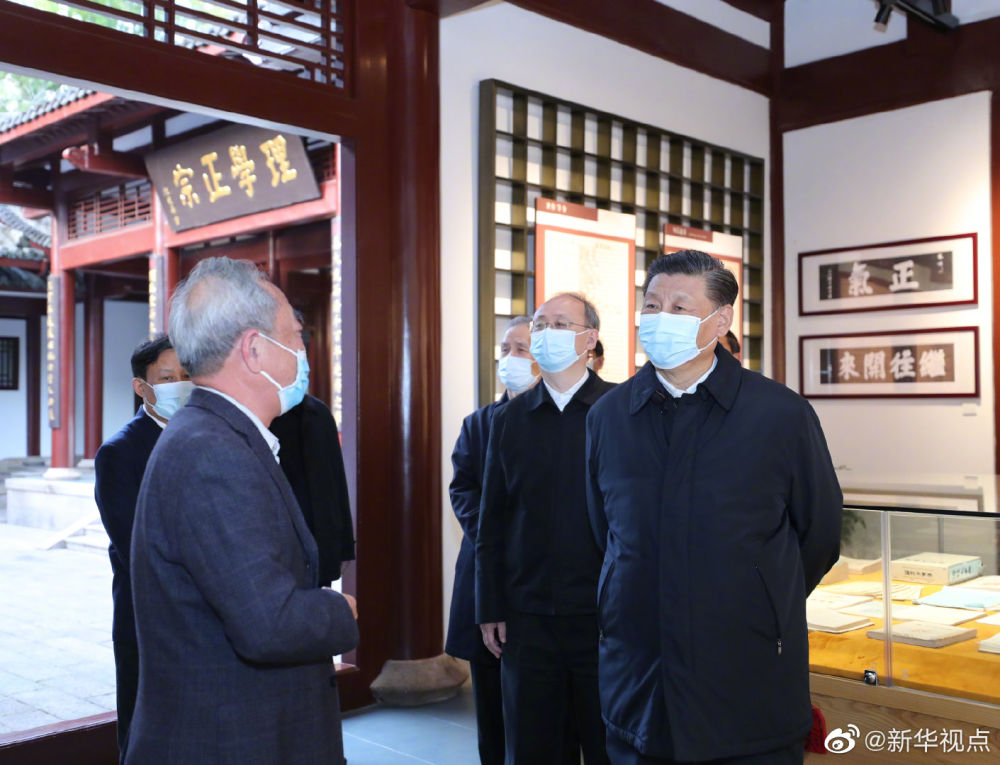00:58

From expanding the use of reusable energy and desert greening to setting a concrete target for China's CO2 emission peak, the country is making its "green development" drive crystal clear as it tops Beijing's next five-year plan.
In east China's Fujian Province, where Chinese President Xi Jinping had spent over 17 years, locals are hugely benefiting from tea plantations.
Read more:
How Xi Jinping's 'three visits' changed an impoverished town in Fujian
How a younger Xi Jinping tackled corruption in Fujian
On Monday, President Xi revisited the area during a four-day inspection tour. He inspected an ecological tea garden in Xingcun Township in Nanping City, in the first tour after the adoption of the 14th Five-Year Plan (2021-2025) for national economic and social development and the long-range objectives through the year 2035.
Agricultural talents sent to villages for rural revitalization
Thanks to the advice given by agricultural talents sent to villages, rapeseed is now growing alongside tea plants in an effective strategy to increase soil fertility while ensuring the preservation of biodiversity and the entire ecological chain.

Chinese President Xi Jinping inspects east China's Fujian Province, March 22, 2021. /Xinhua
Chinese President Xi Jinping inspects east China's Fujian Province, March 22, 2021. /Xinhua
Agricultural talents, also called "technological commissioners," was an idea introduced by the then governor to Fujian Province in a 2002 article, which called for bonding officials and farmers. In the article, Xi pointed out that it's "beneficial" to "explore innovative working mechanisms in villages."
In October 2019, Xi again stressed the importance of "technology commissioners" to the country's realization of rural revitalization at a summary meeting on the 20 years' implementation of the technology commissioner system in Beijing.
"In the past, the tea industry was a pillar in your fight against poverty, and it should become a pillar industry of rural vitalization in the future," Xi said on Monday at the tea farm. Fujian is a major tea production base in China, with the main categories being oolong tea, green tea and black tea.
To understand local efforts in ecological protection from a broader view, Xi also visited an intelligent management center at the Wuyishan National Park the same day.
00:39

During his visit to the park, he encountered a group of tourists. "You can enjoy the mountain scenery in Wuyishan, and enjoy the seascape in Xiamen City (Fujian's provincial capital city)," he told the group.
Cultural confidence: 5,000 years of civilization
Xi, also general secretary of the Communist Party of China Central Committee, on Monday highlighted cultural confidence during a visit to a park dedicated to Zhu Xi, a renowned Chinese philosopher of the 12th century.
"Without the 5,000-year-long Chinese civilization, how could we have found the road to achieve today's success," Xi said when he visited the park in the city of Wuyishan, east China's Fujian Province.

Chinese President Xi Jinping visits a park dedicated to Zhu Xi, a renowned Chinese philosopher of the 12th century, in east China's Fujian Province, March 22, 2021. /Xinhua
Chinese President Xi Jinping visits a park dedicated to Zhu Xi, a renowned Chinese philosopher of the 12th century, in east China's Fujian Province, March 22, 2021. /Xinhua
"Taking the path of socialism with Chinese characteristics, we must continue to adapt Marxism to China's conditions," Xi noted.
Special attention should be paid to tapping the essence of the 5,000-year-long Chinese civilization, promoting fine traditional culture, integrating its essence with the Marxist stance, viewpoint and methodology, and unswervingly following the path of socialism with Chinese characteristics, Xi said.
As one of the main ancient Confucian scholars, Zhu Xi was famous for his expositions on Confucian classics. He put forward concepts such as "the people are the foundation of a nation," embodying the people-based philosophy in ancient China.
(With input from Xinhua)

